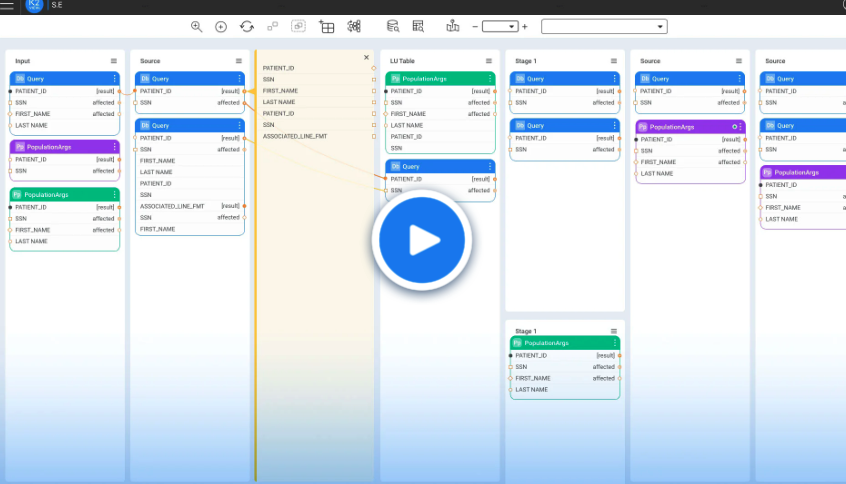Looking for a test data management tool to accelerate software delivery? This list offers an overview of the different solutions available on the market.
The Significance of Test Data Management
Getting reliable access to test data can be a huge drain on resources. In fact, it’s one of the main drivers of inefficiency for software development and testing teams.
Most QA professionals waste between 5 to 15 hours per week dealing with test data-related issues. This means that on average, nearly one full day each week is dedicated to issues that could be solved with proper test data management tools.
In recent years, with the change to "shift-left" testing, test data management is becoming a top priority for enterprises. They understand that to build a truly agile software development environment, quality test data must be readily available to developers and QA engineers whenever they need it.
Test data management tools enhance the efficiency and quality of testing while helping enterprises comply with data privacy regulations.
Get the latest Gartner report on test data management.
Selecting the Right Test Data Management Tool
When going through the test data management tools list, make sure the solution you choose can:
- Access data from any data source
Data comes from many sources. It’s critical to choose a tool that can provision test data from any relational or non-relational data store – including legacy mainframes, if relevant. You also need access to fresh data, which means you should look for a tool that refreshes test data on demand, and maximizes test coverage. - Discover and mask sensitive data
Your test data management tool should be able to automatically discover and classify Personally Identifiable Information (PII) and other sensitive data, as well as employ diverse data anonymization techniques. It should also be able to mask unstructured data, like PDF files and images, while preserving referential integrity. - Subset test data
An effective test data management tool must provide data sampling and data subsetting capabilities, including the ability to transform, age, reverse, and roll back data. - Generate synthetic data
If teams lack access to reliable and complete production data, synthetic test data can be used as a stand in. Synthetic data generation is a scalable way to provide a steady stream of test data that can be used when real production data is incomplete, biased, or unavailable.
Test Data Management Tools List
- Solix
Solix automates the creation of intelligently sized database subsets. These subsets can help companies save on storage space while still providing a syntactically correct copy of the production database needed to achieve the most accurate test results. It is important to note that Solix's approach is focused on storage efficiency, and it may not offer the same level of customization and data masking features that a full test data management solution provides. - BMC
BMC AMI DevX Data Studio offers visualization capabilities to help users comprehend vast quantities of data, deepening their comprehension of complex data objects and their underlying relationships and interdependencies. The interface also makes it simple to compare and edit data in multiple files (e.g., IBM Db2, IBM IMS, SQL Server, Oracle, and VSAM) all in one place, and to identify the impact of changing data. While BMC excels at data visualization, it might lack some of the advanced data masking and synthetic data generation capabilities of an enterprise-grade test data management solution. - Avo Automation
Avo Automation’s focus is on providing companies with AI/ML-based synthetic data. They prioritize staying compliant with ever-changing data privacy regulations by uncovering non-compliant data in non-production environments and ensuring data provided to downstream environments is in line with regulations. However, they do not provide a large variety of data masking and data anonymization options. Avo also supports open architecture with easily pluggable custom modules and is built and deployed on open-source technologies, but it’s important to note the limitations of open-source test data management tools. - Accelario
Accelario is built specifically with agile teams in mind. Their test data management solution gives teams the ability to automatically provision and refresh test data environments. While it's efficient for test data provisioning, it might not offer the same level of advanced data transformation or automation that more comprehensive test data management solutions provide. - Test Sigma
Test Sigma uses test data profiles to make it easier to organize and manage test data sets. It’s a relatively low-effort way to manage test data and makes it possible to import data from different sources and in different formats. However, Test Sigma only imports data from .xls and JSON files, which makes it less relevant for enterprise-level teams who need to be able to access a wide variety of data from multiple sources.
K2view: Top of the Test Data Management Tools List
While the solutions featured in the test data management tools list presented above can help in certain cases, they do not compare to a full-spectrum test data management solution like K2view test data management (K2tdm). For enterprises with complex data environments, a comprehensive test data management tool is the only viable option.
With a unique entity-based test data management approach, K2tdm organizes test data by business entities (like customers, products, or orders), where the data for each instance of an entity (a single customer, for instance) is stored in an individually encrypted and compressed Micro-Database™.
K2tdm offers enterprise-grade test data management, with multi-source data extraction, automatic discovery of PII, synthetic data generation, and more. That’s one of the reasons why K2view was recognized as a Visionary in Gartner’s Magic Quadrant for 2023.
Learn more about K2view Test Data Management software.













